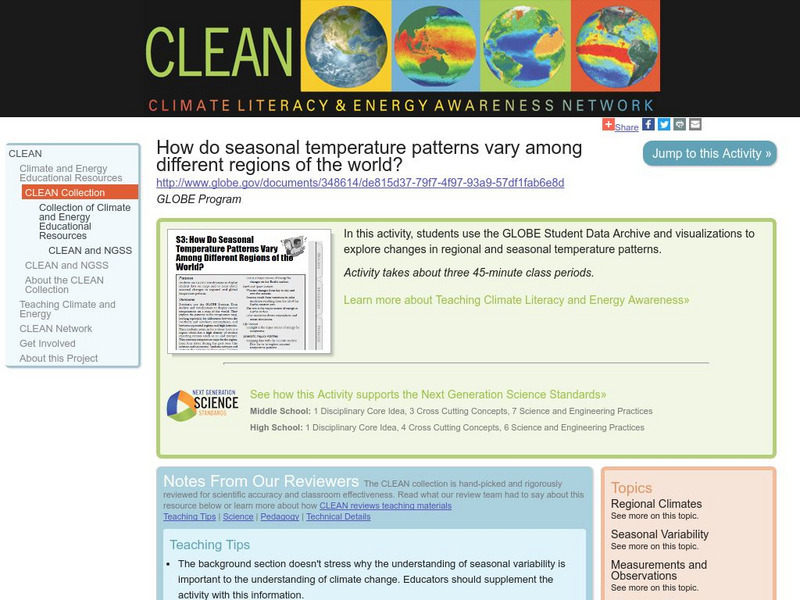Hi, what do you want to do?
Shodor Education Foundation
Shodor Interactivate: Comparison of Univariate and Bivariate Data
Young scholars learn about the difference between univariate and bivariate data and understand how to choose the best graph to display the data.
BSCS Science Learning
Bscs: Frog Symphony
This inquiry focuses on analyzing spatial and temporal data for frog calls to determine the best time of day and location to hear a symphony of frogs. Click on the link for teaching guides and handouts.
Incorporated Research Institutions for Seismology
Iris: J Ama Seis
jAmaSeis facilitates the study of seismological concepts in middle school through introductory undergraduate classrooms. Users can obtain and display seismic data in real-time from either a local instrument or from remote stations.
National Council of Teachers of Mathematics
Nctm: Illuminations: Box Plotter
Use this applet to create a customized box plot with your own data, or display a box plot of an included set of data.
Other
Stat Soft: Getting Started With Statistics Concepts
Definitions of the basic concepts in statistics. Great for review and discussion or for introduction into topics.
PBS
Pbs Online News Hour Extra: Watching the Clock: Building Media Savvy Students
A lesson that leads students to an understanding of the time constraints on broadcast news by applying data-collecting and data-display skills. Students will learn to identify the main difference between publicly funded news programs...
Smithsonian Institution
Smithsonian Source: Pocahontas: One Foot in Two Worlds
What is the true story of Pocahontas? Pupils draw upon information from photographs, paintings, cartoons, and architectural drawings in order to analyze and interpret historical data.
Shodor Education Foundation
Shodor Interactivate: Pie Chart
Students investigate how a pie chart can be used to display data graphically. The resource includes the activity and instructor resources.
Climate Literacy
Clean: Seasonal Temperature Pattern Variation in Different Regions of the World
Students use GLOBE climate science visualizations to display student data on maps and to learn about seasonal changes in regional and global temperature patterns.
Other
Plu: Designing and Delivering Multimedia Presentations: Why Use Visuals?
The advantages to incorporating visuals into a multimedia presentation are explained. SL.9-10.5 Audio Visuals. CCSS.ELA-Literacy.CCRA.SL.5, SL.11-12.5 Audio Visuals










